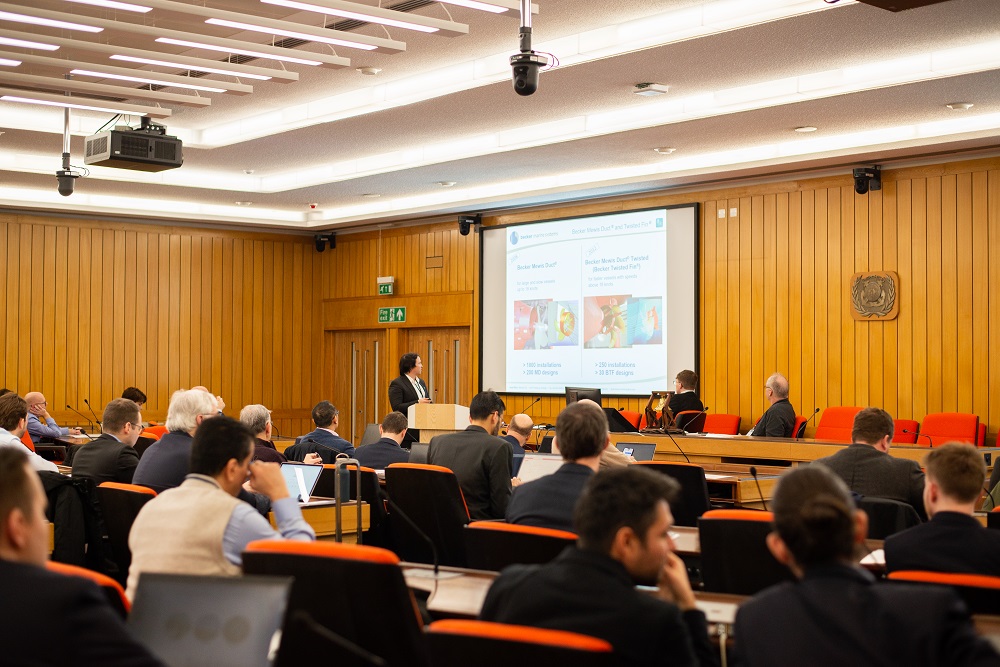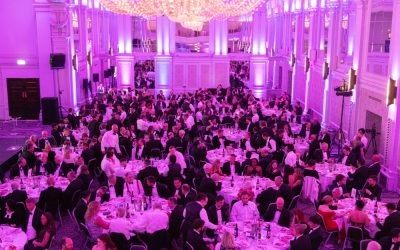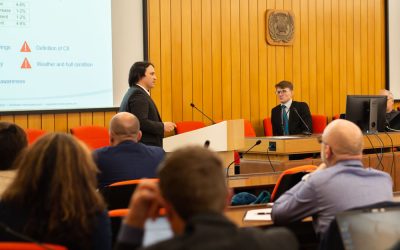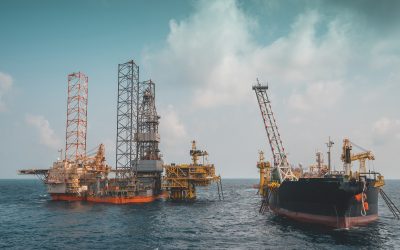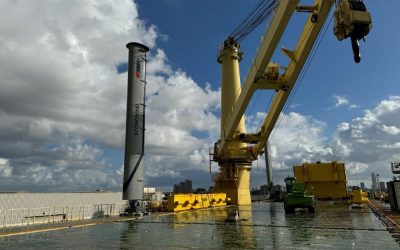The Royal Institution of Naval Architects (RINA) concluded its technical conference on Managing CII and Associated Challenges this week on 17th January. The conference painted a revealing picture of the maritime industry at a pivotal moment as it delved into the adoption of the International Maritime Organization’s (IMO) Carbon Intensity Indicator (CII) rating system.
The event served as a timely and significant research platform, offering a space for in-depth discussions and debates that are anticipated to influence key decisions leading at forthcoming meetings of IMO’s Marine Environment Protection Committee (MEPC).
CII is designed to work as a comprehensive metric for assessing and benchmarking the carbon intensity of vessels, promoting transparency and accountability in the pursuit of a more sustainable future. However, its adoption has been seen as contentious and many argue that a ‘one size fits all’ approach will hinder, rather than aid attempts by the industry to become more environmentally friendly.
Managing CII and Associated Challenges, the first conference of its kind organised by RINA, was attended by nearly 100 people. It aimed to provide a unique opportunity for industry leaders, experts, and professionals to share insights, research findings, and practical strategies related to managing the new CII and overcome challenges the industry faces. The diverse range of sessions, including presentations on Owner Experience, Ship Type Specific topics, Operational Strategies, Technical Strategies, and New Metrics for CII, offering a holistic view of the issues at hand.
Chris Waddington, technical director of the International Chamber of Shipping (ICS), expressed his satisfaction with the conference. According to Waddington, the event achieved an important balance, encompassing diverse elements such as presentations, Q&A sessions, discussions, and networking time. He praised the well-structured nature of the event, highlighting its success in providing valuable technical information while offering opportunities for participants to expand on the topics through interactive sessions at the end of the conference.
“For ICS it’s quite a complicated issue because we represent the whole industry,” stated Waddington. “But for us we’re looking for a holistic solution. So CII has got to be something very simple, which is fair to everyone, or it’s got to reflect the complexity of the industry,” he said.
The knowledge generated and shared during the conference is expected to play a crucial role in shaping discussions and decisions at MEPC. Under its remit as an NGO at IMO, RINA has already made a record number of submissions ahead of the deadline for MEPC 81, which takes place 18-22 March. However, it’s likely the insights gained from the conference discussions will inform policy considerations, industry standards, and potential revisions or enhancements to the CII rating system to be further discussed at MEPC 82 in the autumn. This collective effort is essential in ensuring that the maritime industry continues to evolve toward a more sustainable and environmentally responsible future.
“A key time is probably going to be the second half of this year because the data is being submitted by the ship owners through ICS,” said Chris Waddington. “So the CII ratings will be confirmed as a part of a progressive process around the middle of year. I think that’s going to reveal the true extent of the things that need to be improved in the system,” he added.
CII is a key component of the IMO’s efforts to assess and improve the energy efficiency of ships, which applies to all cargo, RoPax (Roll-on/Roll-off Passenger) and cruise ships with a gross tonnage (GT) above 5,000. The aim of the new system is to provide a measure of how efficiently a ship transports goods or passengers, expressed in grams of CO2 emitted per unit of cargo-carrying capacity and nautical mile. This indicator aims to incentivise and promote the reduction of greenhouse gas (GHG) emissions from the maritime sector.
At present the CII comprises of several components. Central to this is a system wherein ships are assigned an annual rating from A to E, based on their carbon intensity. These are expected to become increasingly stringent as the industry works towards the IMO’s decarbonisation targets, particularly looking forward to 2030. If a ship receives a D rating for three consecutive years or an E rating in a single year, a corrective action plan needs to be developed. This plan is integrated into the Ship Energy Efficiency Management Plan (SEEMP) and requires approval.
CII is intended to serve as a mechanism to drive continuous improvement in the energy efficiency of ships, encouraging the maritime industry to adopt measures that contribute to the overall goal of reducing carbon emissions and achieving a more sustainable shipping sector.
The conference marked a significant moment for RINA as it plans to organise further events on crucial industry topics and position itself as a key contributor to the ongoing global dialogue on decarbonisation the maritime sector. The research platform provided by the conference is anticipated to have a lasting impact on the industry, influencing decisions and shaping the path towards a more sustainable maritime future.
